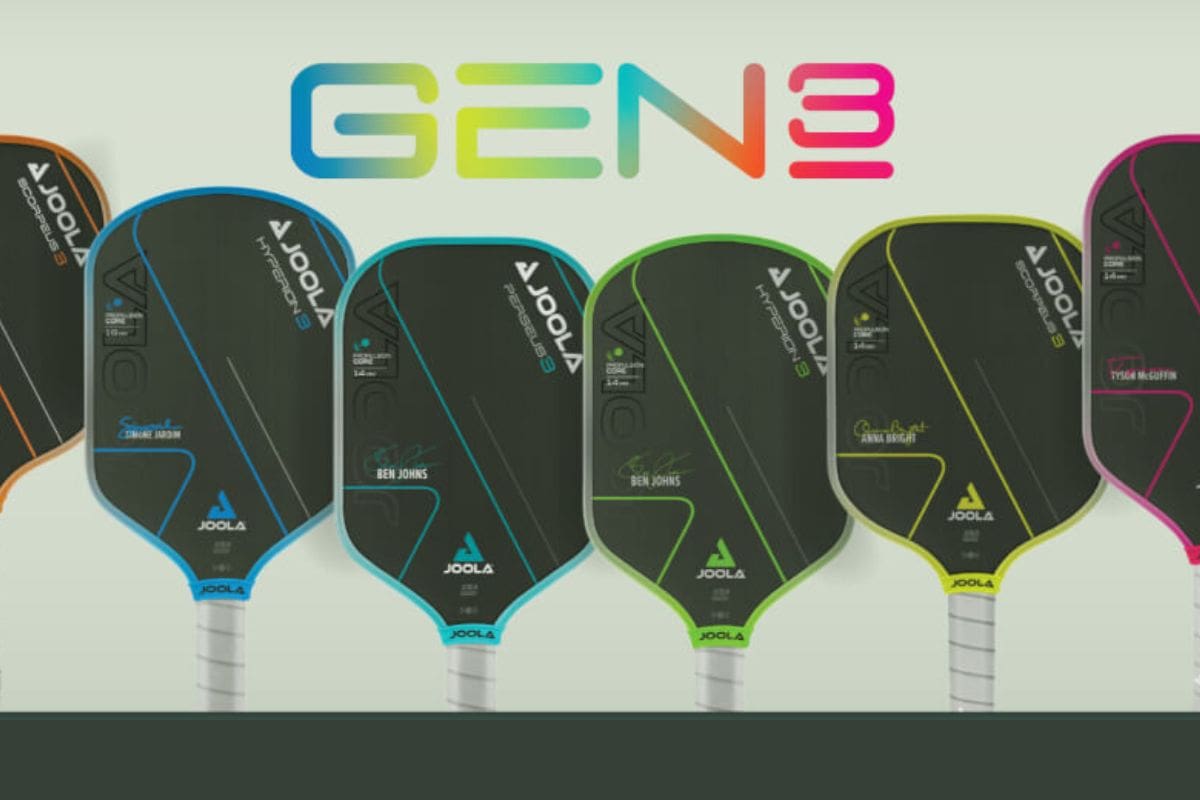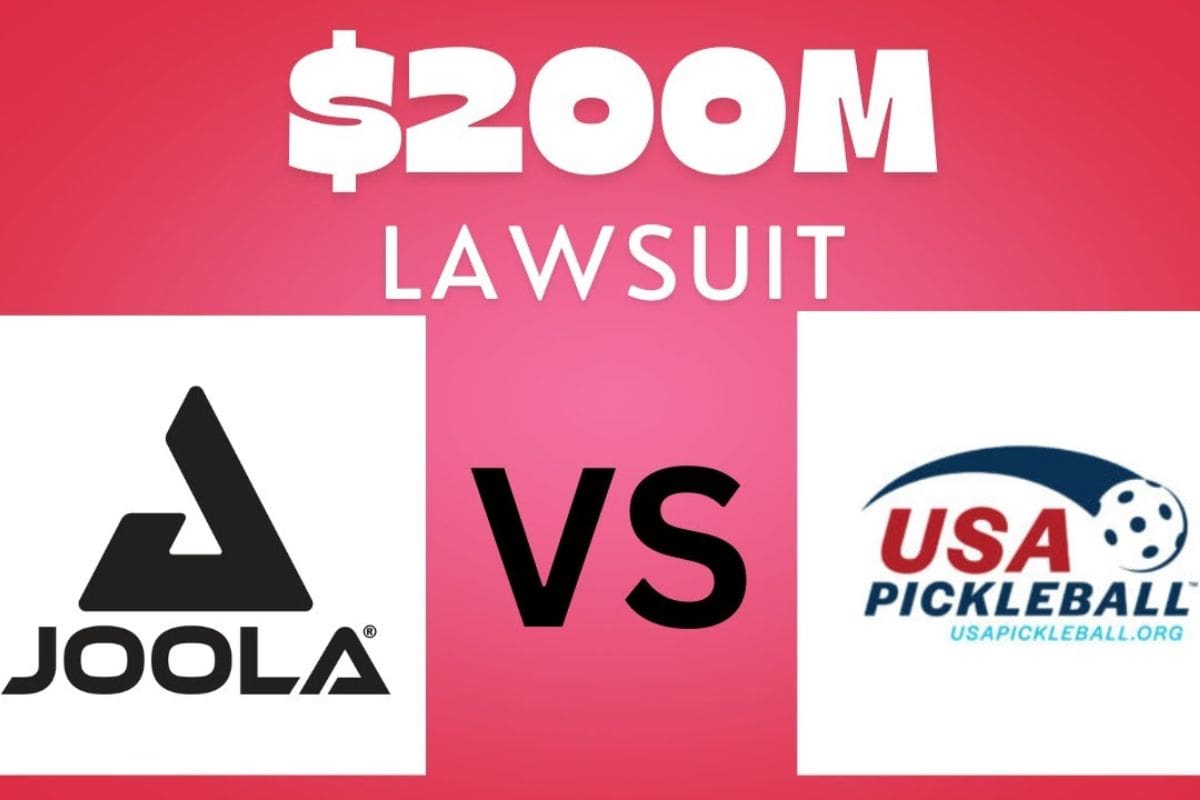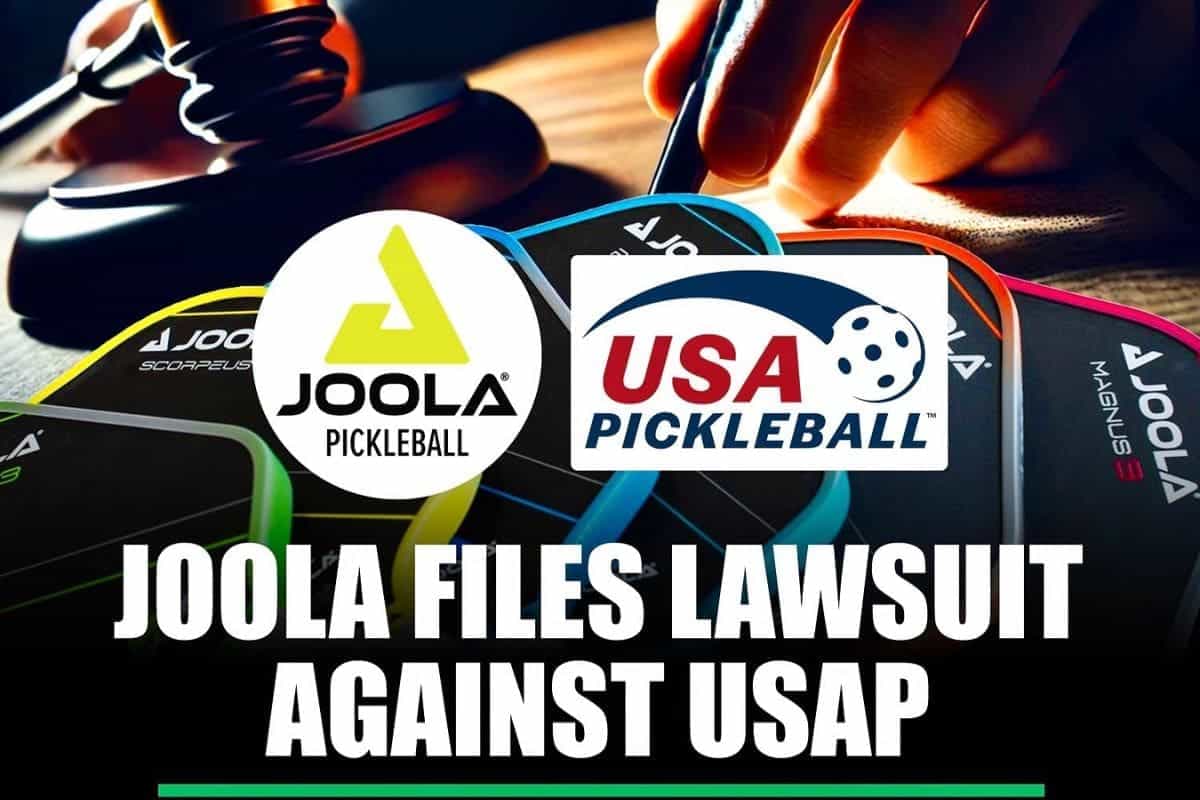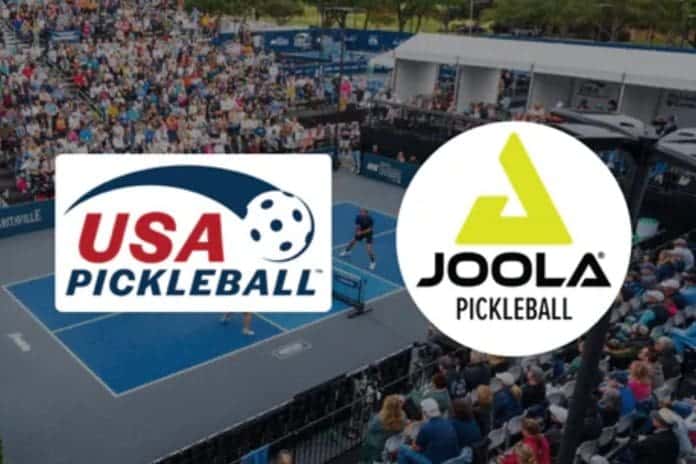JOOLA Vs USA Pickleball Lawsuit: The recent discoveries in the JOOLA vs. USA Pickleball lawsuit offer a revealing window into the alleged discriminatory practices and procedural discrepancies within the equipment approval process. JOOLA has emphasized instances of arbitrary decision-making and a lack of due process, which they argue indicate subjective judgments by USA Pickleball officials. These claims not only challenge regulatory integrity but also imply broader implications for industry governance and consumer trust. As these allegations unravel, the pickleball community faces a crucial moment that could redefine transparency and fairness in the sport’s regulatory framework.
Key Allegations by JOOLA
- JOOLA alleges USA Pickleball’s CEO and equipment head made biased remarks affecting paddle approval.
- Changes in grit standards after initial approval led to compliant paddles failing subsequent evaluations.
- JOOLA claims USA Pickleball removed paddles without allowing the standard 18-month sell-through period.
- The lawsuit could set a precedent for increased scrutiny and changes in regulatory practices within the pickleball industry.
- Industry concerns about the integrity of USA Pickleball’s approval process and potential financial risks for manufacturers are highlighted.
Overview of JOOLA’s Claims
In its lawsuit, JOOLA asserts that USA Pickleball engaged in discriminatory and arbitrary practices in the approval process, leading to the unwarranted delisting of its Gen 3 paddles. This claim depends on the notion that USA Pickleball deviated from standardized protocols and exhibited inconsistency in their application of approval criteria. JOOLA contends that such actions not only compromised the integrity of the approval process but also inflicted significant financial and reputational damage on their brand.
JOOLA’s accusations are rooted in a detailed examination of the procedural anomalies and subjective decision-making allegedly exhibited by USA Pickleball. The manufacturer argues that the governing body failed to provide clear, transparent, and consistent guidelines for paddle approval, thus opening the door to potential bias and favoritism. Specifically, JOOLA highlights instances where similar paddles from other manufacturers were approved without issue, while the Gen 3 paddles faced unwarranted scrutiny and subsequent delisting. This discrepancy, JOOLA posits, indicates a potential underlying prejudice or conflict of interest within the approval committee.
Moreover, JOOLA’s lawsuit emphasizes the broader implications of such practices on the pickleball industry. By questioning the fairness and transparency of the approval process, JOOLA brings to light concerns about the overall governance and regulatory oversight by USA Pickleball. The lawsuit suggests that these alleged practices not only affect individual manufacturers but also erode trust within the pickleball community, potentially stifling innovation and competition.
Points Highlighted by JOOLA
Highlighting the main issues in JOOLA’s claim, the lawsuit carefully details the sequence of events and procedural inconsistencies that led to the removal of their Gen 3 paddles by USA Pickleball. Initially, USA Pickleball approved JOOLA’s two base models of Gen 3 paddles in September, indicating compliance with the governing body’s standards.

However, the subsequent submission and approval of nine similar paddles in November, which unintentionally included extra foam material, set the stage for debate. JOOLA argues that the inclusion of additional foam in the similar paddles was accidental and did not represent the mass-produced versions of their products. Despite this, USA Pickleball’s decision to remove the paddles without allowing the standard 18-month period for stock sales has raised significant concerns.
- Initial Approval: In September, USA Pickleball approved JOOLA’s two base models, confirming their compliance.
- Submission of Similar Paddles: In November, JOOLA submitted nine similar paddles, which received approval despite containing unintended extra foam.
- Accidental Extra Foam: The additional foam was an unintended inclusion and not found in mass-produced paddles.
- Removal Decision: USA Pickleball removed the paddles citing the extra foam, skipping the standard 18-month sell-through period for existing stock.
- Procedural Inconsistencies: JOOLA argues that USA Pickleball’s actions were inconsistent with usual practices and lacked due process.
Core Issues Raised by JOOLA
JOOLA’s main concerns in the lawsuit revolve around allegations of biased judgment, procedural irregularities, and post-approval standard changes by USA Pickleball. Central to JOOLA’s claims is the alleged prejudgment by key USA Pickleball officials. Text messages between CEO Justin Maloof and equipment head Carl Schmits reveal a bias, referring to JOOLA’s paddles as excessively effective’ prior to any official testing. This suggests potential preconceived notions which could have influenced subsequent decisions.
JOOLA also raises concerns about procedural irregularities, particularly regarding grit standards. Initially, their paddles were approved under specific criteria, but JOOLA argues these standards were changed post-approval, leading to previously compliant paddles failing under newly imposed criteria. This shift in standards without clear communication undermines the fairness and reliability of the regulatory process.
Moreover, JOOLA disputes USA Pickleball’s objections to their marketing claims. USA Pickleball cited rule violations concerning JOOLA’s promotion of a ‘spring-like effect’ in their paddles, despite prior approval of the same. This inconsistency highlights potential issues in how marketing claims are evaluated and regulated.
Industry Reactions and Speculations
Amidst the unfolding legal dispute, industry insiders are scrutinizing the broader implications for regulatory practices and market dynamics within pickleball. The controversy between JOOLA and USA Pickleball, particularly the latter’s alleged regret over approving the Gen 3 paddle, has ignited debates about the consistency and transparency of equipment regulations.
Regulatory Integrity: Concerns are mounting over the integrity of USA Pickleball’s approval process. The organization’s purported attempt to find technicalities for delisting the Gen 3 paddle has led many to question whether the approval system is being manipulated or if it lacks stringent standards.
Market Stability: JOOLA’s $200 million damage claim, half of which is punitive, highlights the potential financial volatility facing manufacturers. This lawsuit could set a precedent, leading to increased legal scrutiny and financial risks for companies within the pickleball industry.

Industry Dynamics: The legal skirmish might impact the balance of power among key players in the market. A decision in favor of JOOLA could embolden other manufacturers to challenge regulatory decisions, potentially leading to a more competitive industry landscape.
Consumer Trust: The dispute may erode trust among consumers regarding the fairness and reliability of approved pickleball equipment. Players rely heavily on regulatory bodies to ensure equipment compliance, and any perceived bias could diminish confidence in the sport’s governing entities.
Future Regulations: This lawsuit could drive significant changes in regulatory practices. There may be calls for more transparent, rigorous, and perhaps alternate-party oversight in the approval processes to avoid similar conflicts in the future.
Impact and Historical Context
The ongoing legal battle between JOOLA and USA Pickleball not only highlights the immediate consequences for the sport but also echoes historical tensions over equipment regulation and fairness that have periodically surfaced in the pickleball community. This controversy brings to the forefront the recurring debate over ‘hot paddles,’ which many argue disrupt the level playing field that is central to the sport’s integrity. The dispute emphasizes the intricate relationship between technological advancements in equipment and the regulatory frameworks that seek to guarantee fair competition.
Historically, similar controversies have punctuated pickleball’s evolution. The Thro Light Apex incident serves as a notable example, where disputes over paddle specifications led to significant friction between manufacturers and governing bodies. Such instances highlight the ongoing challenge of balancing innovation with regulation. These historical precedents provide a lens through which the current JOOLA vs USA Pickleball lawsuit can be understood, emphasizing that the crux of the issue—ensuring fairness while fostering technological progress—remains a persistent and challenging endeavor.
The impact of the present lawsuit extends beyond the professional domain, affecting amateur players who look to regulatory bodies for guidance on permissible equipment. As the sport continues to grow in popularity, the outcomes of such disputes have the potential to shape the regulatory landscape for years to come. The resolution of this lawsuit will likely set a precedent for how future equipment advancements are handled, potentially influencing rules, player strategies, and manufacturer innovations.

News in Brief: JOOLA Vs USA Pickleball Lawsuit
The emerging details from the JOOLA vs. USA Pickleball lawsuit highlight significant concerns regarding the integrity and fairness of the equipment approval process within the pickleball community. JOOLA’s allegations of discriminatory practices and procedural irregularities challenge the transparency and accountability of regulatory bodies.
This case emphasizes the need for rigorous oversight to maintain industry standards and consumer confidence, potentially reshaping the power dynamics among key stakeholders in the sport. The outcome may establish a precedent for future governance practices.
Also Read: Twitter Storm Erupts Over Allegations in Pickleball Community




